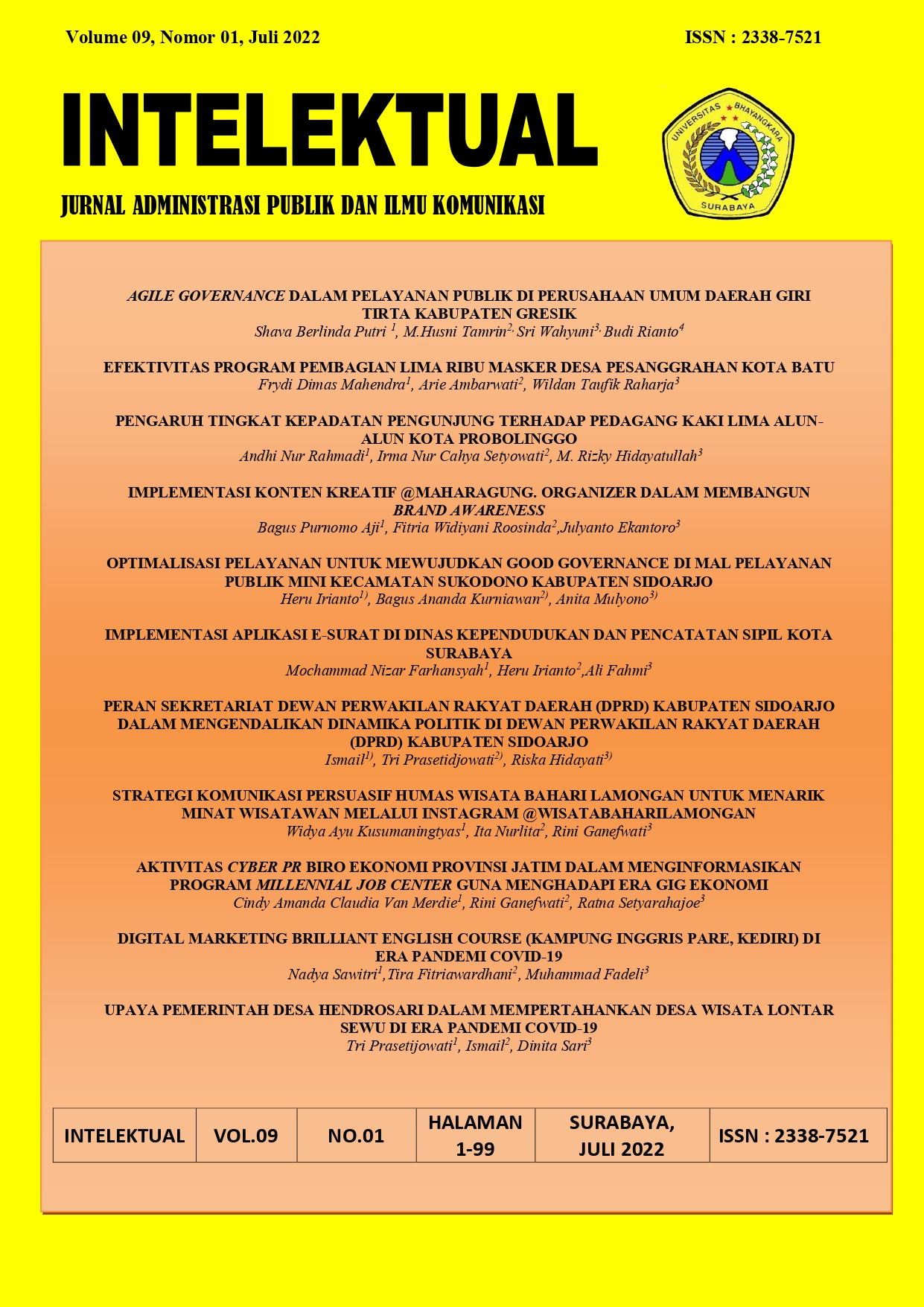OPTIMALISASI PELAYANAN UNTUK MEWUJUDKAN GOOD GOVERNANCE DI MAL PELAYANAN PUBLIK MINI KECAMATAN SUKODONO KABUPATEN SIDOARJO
Main Article Content
Abstract
This study aims to find out how to optimize public services at the Sukodono District Mini Public Service Mall. In order to realize good governance and realize the public's desire for quality services. The method used in this study is a qualitative method, with a descriptive type. The location of this research was conducted at the Mini Public Service Mall, Sukodono District, Sidoarjo Regency. Which is the only District-based Mini Public Service Mall in Indonesia. Then, data collection techniques were carried out by means of in-depth interviews with informants such as staff, civil servants and superiors, field observations, activity documentation, and the use of written documents as other or secondary sources of information in this study. Furthermore, the data analysis technique is by means of data reduction, data presentation and drawing conclusions.
Through this research, researchers focused on quality service indicators put forward by Zeithaml, Berry and Parasuraman. Overall, the Sukodono District government has provided very good service to the community, but in terms of infrastructure, sometimes there are still obstacles from external parties, such as the lack of stock of e-KTP blanks and an error e-KTP recording system. Then socialization regarding services at the Mini Sukodono Public Service Mall has not been evenly distributed so that not many people can benefit from the service.
Article Details
Authors who publish with Intelektual: Jurnal Administrasi Publik dan Ilmu Komunikasi agree to the following terms:
- The author retains copyright licensed under Creative Commons Attribution-NonCommercial 4.0 (CC BY-NC 4.0), which allows others to remix, adapt, and expand on the author's work non-commercially, and even if someone else's new work must also acknowledge the author and is non-commercial, they do not need to license their derivative works on the same terms.
- Authors are permitted and encouraged to post their work online (e.g., in institutional repositories or on their websites) before and during the submission process, as this can lead to productive exchange, as well as earlier and greater citation of the published work ( See Impact of Open Access). Authors can archive preprints and postprints or publisher/PDF versions.

